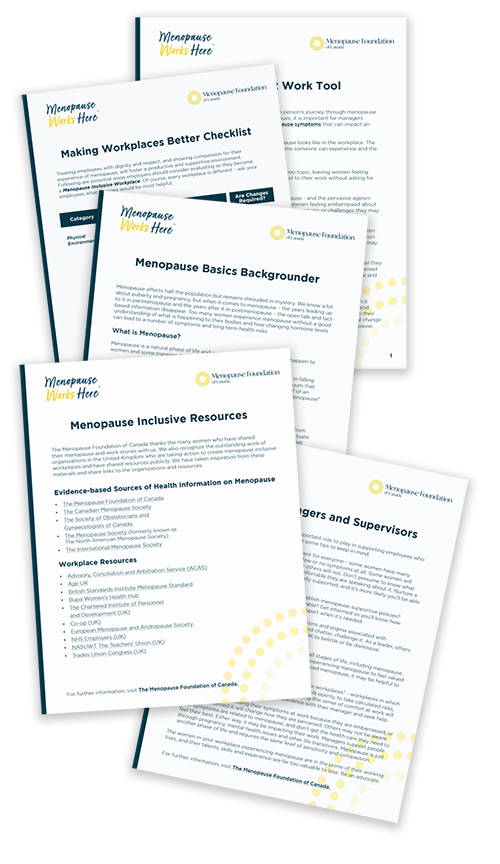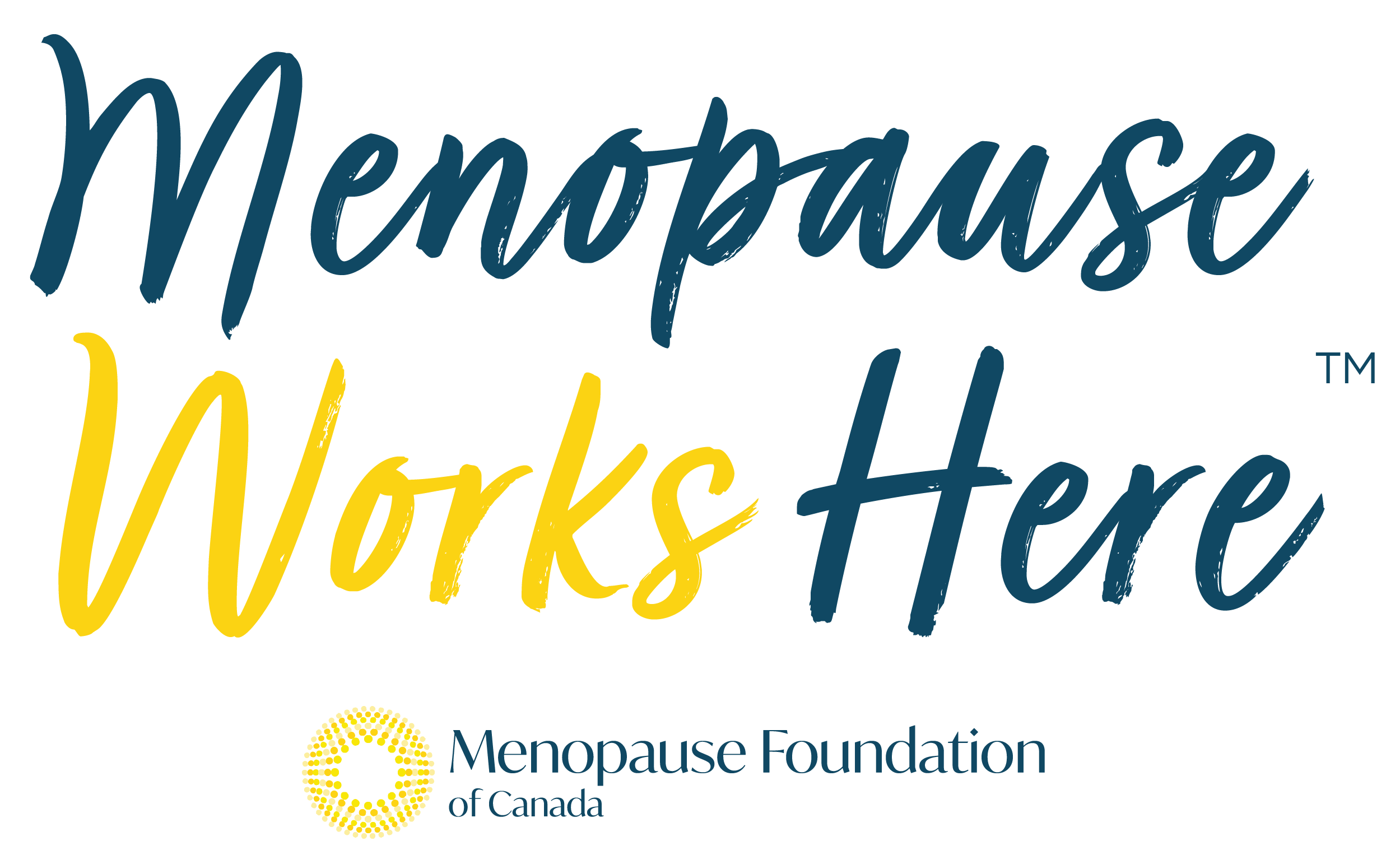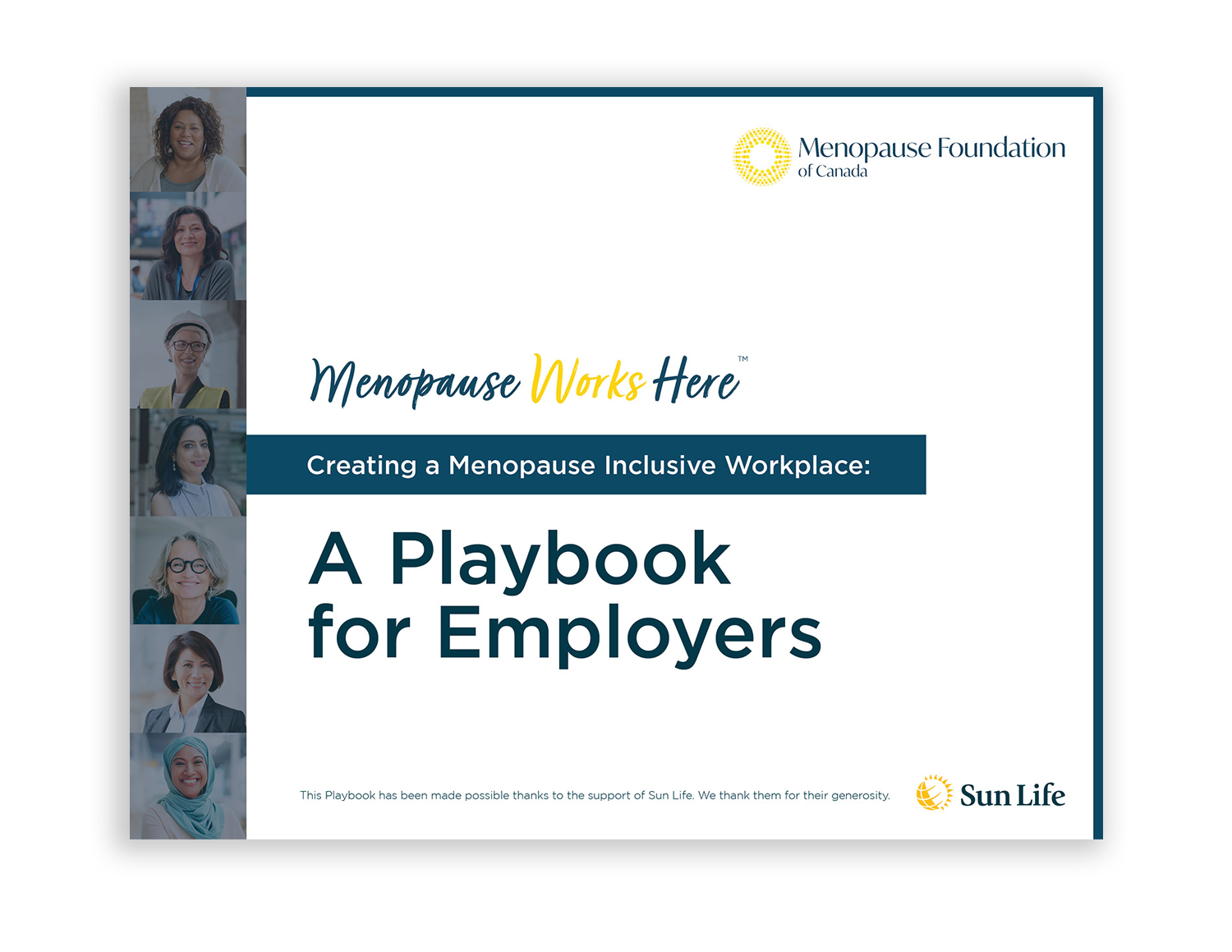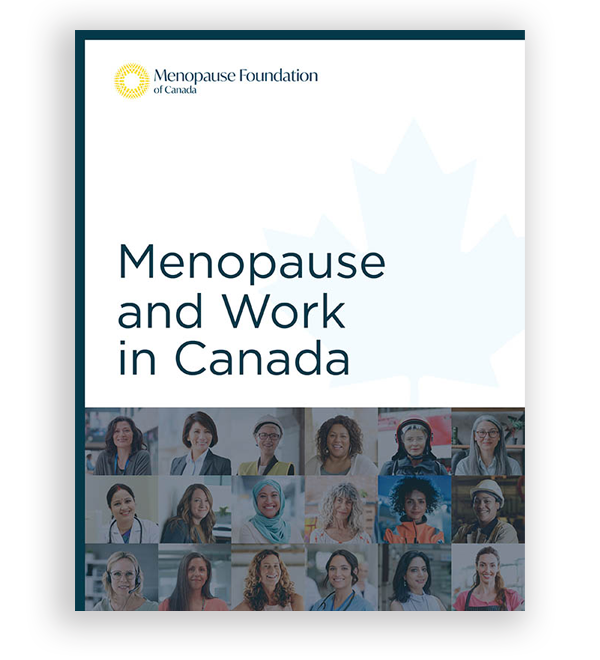Menopause Inclusive Workplace
The Menopause Inclusive Workplace Playbook provides links to tip sheets, resources and tools. Link to them as you read through the Playbook, or download them here:

The Menopause Foundation of Canada can help your organization create a Menopause Inclusive Workplace.
Reach out to us here
We look forward to partnering with you!

Voices of Women







